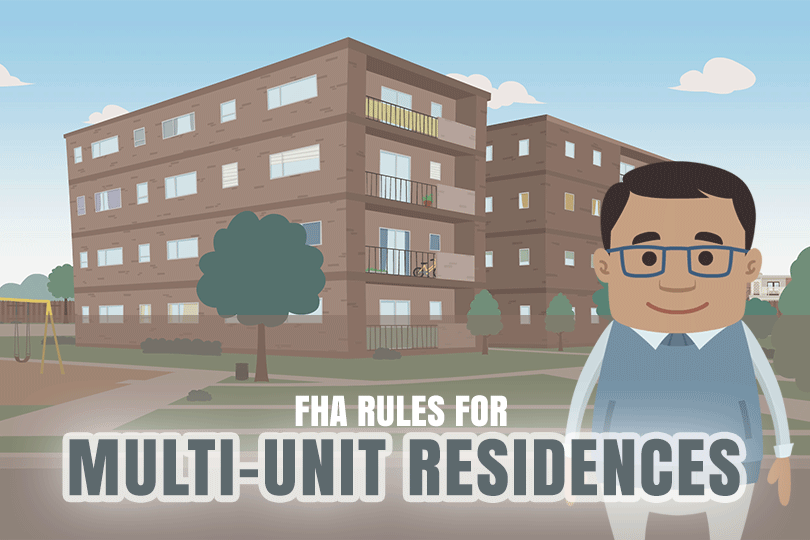FHA Home Loans for Multi-Unit Properties
July 21, 2023
FHA Multi-Unit Property Loans, often referred to as FHA multifamily loans or FHA 2-4 unit loans, are mortgage options specifically designed for individuals who want to purchase multi-unit properties. These loans are insured by the Federal Housing Administration, which means that lenders are more willing to approve applicants with lower credit scores and provide more favorable terms compared to conventional loans.
Qualifying for an FHA Multi-Unit Property Loan
- Credit Score
Although FHA loans are more forgiving of lower credit scores, having a credit score of at least 580 will help you secure a lower down payment (3.5%). However, a score below 580 may still qualify, but with a higher down payment requirement (10%). - Debt-to-Income Ratio
Your debt-to-income ratio should be within acceptable limits, generally around 43%. This means your monthly debt payments (including your mortgage) should not exceed 43% of your monthly income. - Property Requirements
The property you intend to purchase must meet FHA guidelines. It should be in good condition and meet certain safety and habitability standards. - Occupancy
You must occupy it as your primary residence within 60 days of closing the loan and continue to live there for at least one year. - Financial Documentation
Be prepared to provide documentation of your income, employment history, and assets to demonstrate your ability to repay the loan.
------------------------------
RELATED VIDEOS:
Disclosures Give Transparency to Borrowers
Understanding the Purpose of Your Mortgage Down Payment
Putting Money Into Your Escrow Account

FHA Loan Articles
April 28, 2025Home loans have various expenses that aren't apparent to a new borrower until much later in the process. What do you need to consider when making your home loan budget? It might not be complete without addressing some of the issues we cover here.
April 23, 2025 While the prospect of lower interest rates or more favorable loan terms can be enticing, there are situations where waiting is the better option. Refinancing without carefully considering your current financial circumstances is never a good idea, but careful planning in the current financial environment is even more important.
April 22, 2025First-time home buyers worry about loan approval, but there are important steps to take to increase the likelihood that the lender will approve their application for the loan or pre-approval. What do you need to know before you choose a lender?
April 16, 2025There are smart uses for cash-out refinancing loan proceeds and uses for that money that may work against the borrower. We examine some of those choices below, starting with using an FHA cash-out refinance for investment purposes. Is this a good idea?
April 15, 2025House hunters sometimes face a curveball when the appraisal for a home they want to buy with an FHA mortgage is lower than the offer. Is this a deal-breaker? Believe it or not, it isn't the end of the road. A low appraisal can sometimes be just a bump in the road. In other cases, you may wish to walk away from the deal. Here's your game plan to navigate this situation...







